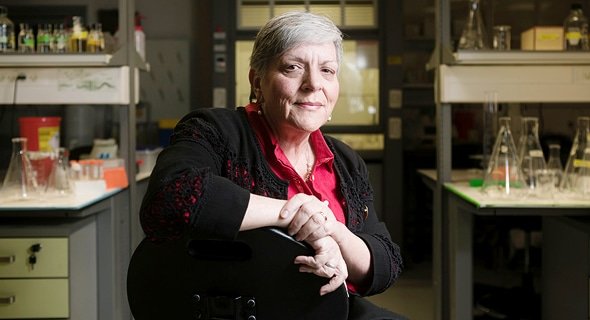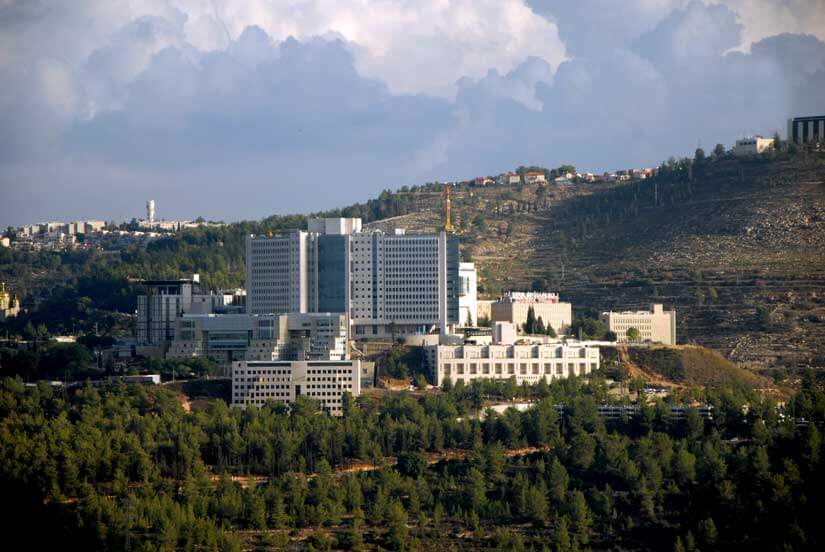Recurrent lymphoma treatment in israel
What does recurrent lymphoma term mean?
Lymphomas are a heterogeneous group of malignant diseases that develop in the lymphoreticular system. Depending on the focus localization the following lesions are distinguished: nodal, extranodal and mixed lesions. In the first case, the malignant process affects the lymph nodes, in the second – other organs and tissues. With a mixed lesion, tumor cells are found both in the lymph nodes and in other organs.
Recurrent lymphoma is the return of the disease after remission. After treatment, single malignant cells may remain in the patient’s body. Up to a certain time, our immunity is able to cope with them and it prevents them from sharing. However, when exposed to unfavorable factors the cell can again begin to multiply uncontrollably leading to the lymphoma re-development..
Making a prognosis and preventing recurrent lymphoma is the task of oncologists and hematologists. In order to do this, doctors choose the most effective methods of primary tumor treatment, compile a monitoring schedule for each patient.
The most common recurrent lymphoma occurs in the first two years after remission is achieved. If after five years the disease has not returned, the patient is considered recovered.
Please contact us and receive an answer
by phone: (24 hours a day) by email: [email protected] or by filling out the contact form
What are the types of recurrent lymphoma?
Depending on the time of appearance, the recurrent lymphoma can be early or late. A recurrence developed in the first year after the end of induction lymphoma therapy is considered early. Re-development of the disease is in a year or more after the end of treatment.
Why does recurrent lymphoma occur and what is the treatment?
The recurrent lymphoma etiology is not fully understood. Scientists have identified only a group of risk factors that contribute to the disease development. They include:
- patient`s age – some lymphoma types are more common in young people, while others are more common after 55 years. The peak of Hodgkin lymphoma recurrences occurs at the age of 20 – 35 and after 55 years;
- male gender;
- congenital and acquired immunodeficiencies – normally the immune system can prevent the development of malignant diseases, therefore, disruption of its work often leads to the tumor appearance;
- some infectious diseases – Epstein-Barr virus, HIV, and, according to some statistics, Helicobacter pylori;
- contact with pesticides;
- smoking;
- the recurrence presence in the past;
- recurrent lymphoma in the history of patient`s close relatives.
For the lymphoma treatment the following is used:
- surgical tumor removal;
- chemotherapy;
- radiotherapy;
- immunotherapy;
- bone marrow transplantation.
The treatment plan is prepared by a doctors` consultation, based on the individual characteristics of the patient, the clinical picture data and the results of additional examinations.
How often does lymphoma recur?
The probability of large B-cell lymphoma recurrence is 30-40%, peripheral T-cell lymphoma – 75%. After recurrence and the use of second-line chemotherapy the chance of the disease recurrence increases.
Rate of Hodgkin lymphoma recurrence is quite low – only 10-13%. However, after a recurrence the chance of the tumor return increases to 20-50%.
Is it possible to make a recurrent lymphoma prognosis?
Prognosis of the recurrent lymphoma is problematic — there is no single system that could help calculate the chance of the disease recurrence. Doctors can only rely on risk factors — the more a patient has, the lower is the chance of a good clinical outcome.
How to identify a recurrence in time?
Patients who had lymphoma in the past should be monitored for the life term by a physician. Regular examinations and tests are the key to the timely recurrence diagnostics.
Diagnostics of recurrent lymphoma in Israel
In order to diagnose the recurrent lymphoma in Israel, are used:
- blood test with counting the number of formed elements;
- biochemical screening to assess liver and kidney function;
- removal of the affected lymph node with subsequent histological examination;
- bone marrow biopsy;
- computed and magnetic resonance imaging, PET-CT to clarify the location, number and size of pathological foci.
These are basic studies. The examination plan may vary depending on the patient’s characteristics.
Treatment of recurrent lymphoma in Israel
For the treatment of recurrent lymphoma in Israel are used:
- radiotherapy;
- chemotherapy;
- allogeneic and autologous bone marrow transplantation;
- immunotherapy.
Doctors use a comprehensive approach that involves using multiple treatment methods for recurrent lymphoma at the same time.
Radiotherapy
Research has shown that radiotherapy increases the five-year survival rate of patients.
Radiotherapy is indicated for patients with slowly progressing lymphomas, at an early stage, when one or more groups of lymph nodes are affected. Most often, in such cases, radiotherapy leads to a complete recovery.
In Israel, at the Hadassah Medical Center, accelerators are used for recurrent lymphoma radiotherapy, which irradiate the tumor from different angles and from different sides. The irradiation accuracy is 0.5 mm, therefore, healthy tissues are almost not affected. A gentle radiotherapy method reduces the frequency and intensity of side effects.
Chemotherapy
Chemotherapy involves the use of cytostatics – drugs that damage malignant cells. The choice of recurrent lymphoma treatment program depends on the following factors:
- tumor type;
- recurrence type and its presence in the past;
- clinical picture;
- the patient`s age;
- the presence of concomitant pathology.
When lymphoma recurs, Israeli doctors use polychemotherapy – several drugs with different mechanisms of action, which significantly increases the treatment effectiveness.
At the Hadassah clinic, oncologists are guided by modern scientific guidelines, thereby achieving high survival rates for patients with recurrent lymphoma with a minimum of complications and side effects.
Allogeneic transplantation
Allogeneic bone marrow transplantation is a surgical intervention, the essence of which is bone marrow transplantation from a related or compatible unrelated donor. Due to the surgery, hematologists are able to restore normal hematosis in case of recurrent lymphoma.
Autologous transplantation
Autologous transplantation is used to treat recurrent lymphoma after first-line therapy. Patients should be no older than 70 years old, have a satisfactory health condition and positive dynamics when using standard chemotherapy. Stem cells are collected from peripheral blood or bone marrow. Consolidation therapy includes treatment with cytostatics with or without radiotherapy.
Immunotherapy
Immunotherapy is a rather new direction in oncology, which is based on the use of monoclonal antibodies. They selectively interact with antigens located on the surface of cancer cells inhibiting their ability to grow and divide. Unlike cytostatics, monoclonal antibodies are highly specific, practically do not cause side effects and complications. Most often, immunotherapy for recurrent lymphoma is used in combination with chemotherapy.
The main advantages of the lymphoma treatment and diagnostics in Israel
The main advantages of the recurrent lymphoma treatment and diagnostics in Israel include:
- high efficiency;
- innovative equipment;
- Russian-speaking coordinators;
- comfortable conditions of stay in the hospital;
- no need to obtain a visa;
- the ability to pay for treatment directly at the clinic, without prepayment.
In Israel, the latest protocols and treatment programs for lymphoma are used, due to which patients quickly recover and return to a full life.
Prognosis and prevention of recurrent lymphoma
Scientists have currently identified five factors that affect the prognosis for recurrent lymphoma:
- age – the patient’s age up to 60 years is considered a favourable factor;
- the type of cancer recurrence and its presence in the past – the more relapses a particular patient had, the worse the prognosis will be;
- disease spread – the chance of a good clinical outcome is high in those patients in whom the lymphoma has not gone beyond the lymphatic system;
- the result of a general blood test and biochemical screening;
- general patient`s condition.
Depending on the prognostic factors, all patients are divided into four risk groups:
- low – 0 – 1 unfavorable conditions;
- low intermediate – 2 unfavorable conditions;
- high intermediate – 3 unfavorable conditions;
- high – 4 – 5 unfavorable conditions.
The prognosis for lymphoma is calculated depending on which group the patient belongs to.













